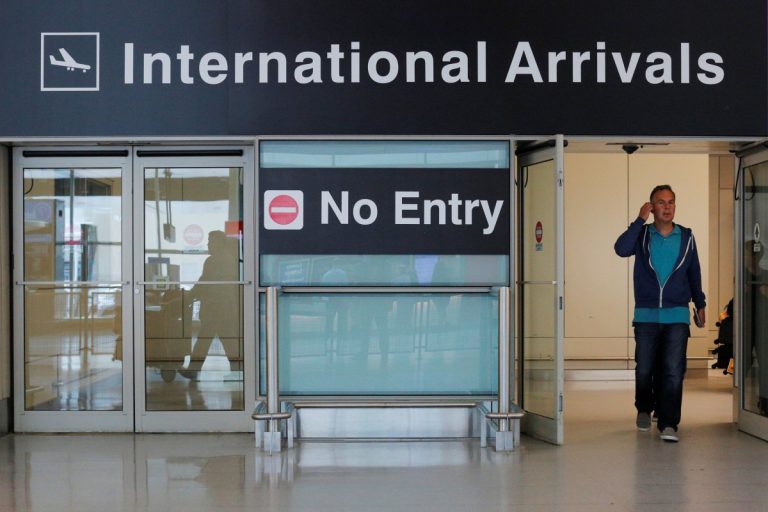
Coming from relatively privileged families, they have it easy in life. Doors are opened for them, whether it’s for extra tuition hours or workshops to teach them to write those admission essays. When it’s time to apply to university, the middle classes of emerging economies have the money to go to foreign universities located in rich countries.
I know this well, because I was one of these privileged ones.
A decade ago, as a pimply Malaysian teen, further study options were aplenty for me. Money was not a concern, unlike my less fortunate classmates not from affluent families. Like all my peers that went to a foreign university, our families belonged to the upper rungs of Malaysia’s middle 40 percent (M40 – the class making up 40 percent between the upper 20 percent and lower 20 percent) and had enough assets to afford the hefty price tags of a foreign education. They could spare the equivalent of around six times the average Malaysian household annual income to pay for three years of tuition and living expenses for us to study at an institution in United Kingdom.
The same goes to students from China, who now make up the biggest cohort of international students in the world. China’s middle-class boom meant families had more money to invest in their children to study overseas. With enough money to afford the higher fees imposed on foreign students and some hard work, a place in the university can be secured.
That was then, before the value of money seemed to decline in an increasingly inward-looking world.
Right-wing populism is taking over countries traditionally popular as study destinations for the privileged students from the so-called developing world or emerging economies. From Brexit to the election of Donald Trump as United States president, these political events are changing the Western world.
And not in ways that support liberal democracy.
Earlier this year, Trump signed an executive order to ban citizens of six Muslim-majority countries from entering the US, including students. It was blocked by state courts for a while, but the Supreme Court last week allowed it to be partially implemented in the meantime until the next court hearing date.
The revised ban now requires travelers, including incoming students, to prove they have a “bona fide relationship” with the US to gain an exemption from the ban. Experts say students shouldn’t have a problem fulfilling this criterion, but won’t give a guarantee that applying for visas to study in the US will be smooth sailing.

Welcome to the US. Please show us your ‘bona fide’ relationship” with the country. Source: Reuters/James Lawler Duggan/File Photo.
The same thing is underway across the pond, in another country favourite for international students. United Kingdom Prime Minister Theresa May is not budging from her insistence that international students should be counted as migrants. Her government last year considered to halve the number of foreign students it allows on its shores, to the dismay of the higher education sector. Universities responded with a #WeAreInternational campaign to reassure foreign students they are still welcome on UK soil, but the damage may already have been done.
Numerous studies have shown the US and UK have lost the interest from prospective students, who have since set their sights on more welcoming countries like Canada and France.
It’s easy to point to a certain former reality TV show host to be the sole reason for this malaise to fall on the global international student population. But that would be a fallacy that could be costly for us in the long-term.
Much as our ego refuses to acknowledge we had a part to play as well.
We had it easy all the way. From applying for a visa to getting accommodation, we could get them as long as we had the money.
As a result, we went mum. We kept to ourselves and got the degree. We stayed out of politics because we thought this freedom to study wherever we wanted is a given and cannot be snatched away from us. We didn’t help our coursemates to campaign against and keep right-wing dictators from being elected. Neither did we care to make sure our own politicians at home preserve our rights as students, including our right to academic mobility.
Quartz reports a survey by the University of California, Los Angeles which found students who identified as “Asian” were the least likely to be politically active – judging by their willingness to join protests – compared to their white, black or Latino peers.

A protest the author joined as a student in UK. She wishes she did more. Source: Author provided.
We were apathetic students and now, those that come after us may well pay the price for it as countries increasingly shut their doors to us.
Sure, we can all go to Canada, but why should our choices be limited to just McGill University and the University of Toronto, as meritorious as they are? What if Canada turns inward, too, and imposes further visa restrictions or a travel ban?
Closing our eyes and leaving this to be decided by others can only spell disaster. Look at what happened when the UK’s youth stayed home and left the older population to decide whether the country should remain in the European Union or leave it. Had they come out in great numbers as they did the recent general elections, they could have avoided the tough roads that now lie ahead for them to travel, study or conduct research in the bloc’s universities.
Alas, they didn’t. Neither do we, from the developing world, speak up to protect our liberties from being stolen from us, including our freedom for academic mobility.
And we are paying the dear price for it now.
But there is some good to come out of this. Now, we have a preview of just how fragile this freedom is. And with this bit of a foresight, we can recoup and organise to have our rights heard loud and clear by our country’s leaders. For the sake of those after us, I sure hope we do.
If we cared, we would. I sure hope we do.
Liked this? Then you’ll love these…
Trump’s travel bans spook some students, fan fears of broader chill
New data prompts fear of Brexit’s impact on UK students’ outward mobility







